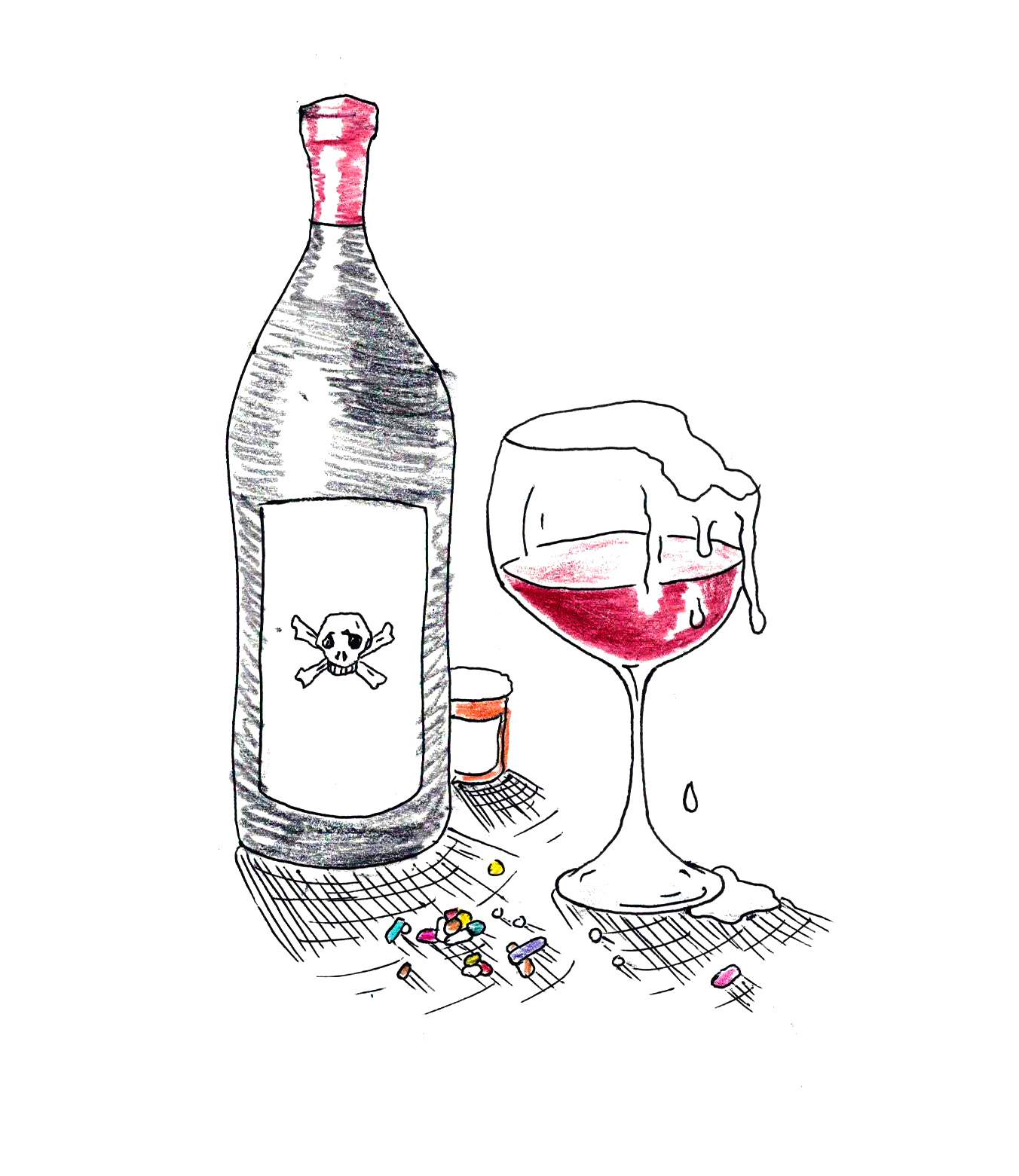
Huy Truong
A Yale-affiliated study found that individuals with human immunodeficiency virus experience more negative effects from alcohol use than individuals without HIV.
The study, published in January, analyzed data from both uninfected individuals and those positive for HIV, using AUDIT-C, a standard questionnaire for the frequency and amount an individual tends to drink. The researchers found that, at the same levels of alcohol consumption, individuals who were undergoing treatment for HIV experienced a higher rate of mortality and physiological harm — defined by specific health indicators such as measures of immune function — than did those who were uninfected.
“We have been studying alcohol use and HIV outcomes for a number of years, and it … appeared as though people with HIV were more susceptible to harm [from alcohol use],” Amy Justice MED ’88, former professor at the Yale School of Medicine and study co-author, said. “There was a lot of discussion on how much of [the difference] was attributable to patients being unable to suppress their viral loads.”
Previous studies linked more negative health outcomes to alcohol use in HIV-positive individuals compared to those who were uninfected, Justice said. However, this disparity was attributed to decreased adherence to treatment associated with alcohol use.
According to AIDS.gov, the HIV Care Continuum — which outlines the stages of HIV medical care from initial diagnosis to treatment, with the goal of achieving viral suppression — is the preferred treatment model for patients with HIV. School of Medicine professor Sandra Springer, who was not involved with the study, said active substance and alcohol use impacts the ability of persons living with HIV to maintain adherence to the HIV Care Continuum. She added that the community of people living with HIV is known to have much higher rates of alcohol use disorders.
The researchers, however, were able to isolate the direct physiological effects associated with alcohol use in HIV-positive individuals from the effects of alcohol use on adherence to prescribed treatments.
“We were able to show in this study that even among people who are taking their medication, alcohol was associated with both higher mortality rates, at every level of drinking, and physiologic frailty,” Justice said.
Future research may indicate whether there are physiological reasons for the increased susceptibility to harm from alcohol use in HIV-positive individuals, Justice said. For example, having a chronic disease may further compromise physical performance after alcohol consumption. She added that immune injury caused by the HIV virus may also cause “leaky gut syndrome,” in which absorption across the gut wall increases, leading to higher levels of blood alcohol for the same amount of consumption.
“Even though people with HIV now are … very functional and medications are very effective, they still have a chronic disease that is taking a toll physiologically,” she said.
Though the physiological underpinnings of alcohol-associated harm in individuals with HIV must still be substantiated, the study suggests that recommended limits for alcohol use be lowered for people with HIV, Justice said. She added that though many providers currently assess alcohol consumption in HIV-positive individuals according to the threshold for uninfected individuals, what is otherwise considered a “safe” level of drinking may not be safe for those with HIV.
According to the Centers for Disease Control and Prevention, more than 1.2 million people in the United States are living with HIV infection.







